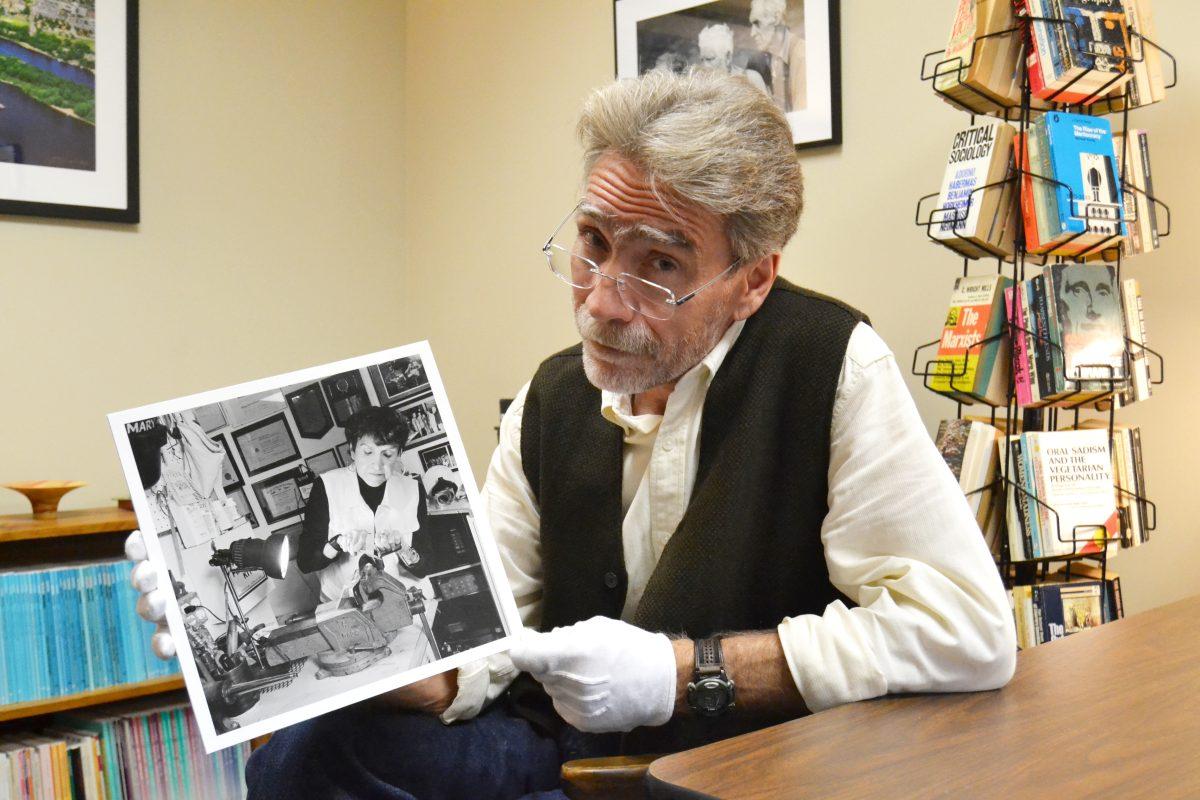A group of four people sat furiously typing at computers in front of a raging space battle that was projected onto a wall. A small crowd watched, and Dan Smidler, a junior in anthropology, stood behind them excitedly giving orders.
“Shield up, shield up, don’t fire!” Smidler said, just before a large explosion destroyed most of the starship onscreen. He paused for a second. “You know, we can mourn for them later. Warp engines to 300 percent!”
They were playing Artimis, a bridge simulator video game, while around them people discussed apocalyptic novels and argued over the intricacies of time travel. A dashing spaceship captain conversed with a man carrying a long bow and quiver full of arrows, and an elementary aged Punisher with Nerf guns ran underfoot.
This was the second year of the now annual North Carolina science fiction convention Illogicon. While last year it pulled in about 200 people, this year was even grander. An estimated 300 participants showed up to celebrate all forms of science fiction, be it comic books, video games, table top games, television or the main focus of the convention, literature.
All these forums allow their participants to escape reality, and it was a common reason cited for a love of the genre.
“To me it’s all about the lasers – killing and asking questions later. I’m a space opera kind of guy,” Smidler said.
However, many people that attended said they also enjoy science fiction’s ability to comment on the human experience in a unique way.
“I like the source material. I’ve always been fascinated by, ‘What if?’” Cerine Hill, a computer engineer and N.C. State alum, said.
“It allows me to postulate a future that I would like to see,” said Martin Van Name, a science fiction author and spoken word artist. For example, he writes about a future where gay marriage is routine and there has been so much racial intermarriage that issues regarding race are all but obsolete.
“Some situations are set up by authors to question the cultural defects of the time,” said John Kessel, a professor of English at N.C. State and science fiction novelist.
For instance, Kessel suggested, Star Trek was trying to break the prejudices of its time, though it didn’t always succeed, by making their crew multicultural. They included an African American woman, a Japanese character and a Russian character during the Cold War.
The convention also supported activities like a theatrical lightsaber battle, a talent show and panels covering everything from “Science Fiction and Ethics” to “ZOM 501: Advanced Zombies.” Esteemed guests included Tim Powers, author of On Stranger Tides, on which the forth Pirates of the Caribbean movie was based, and Garth Graham, a cyberpunk and steampunk artist.
“It’s fan based and run – it was time to have a local sci-fi convention by fans for fans,” said Sara Cheney, a senior in fashion and textile management and volunteer at the convention.
Although this is only its second year, organizers of the event like Chris Ross, one of the founding members and assistant convention manager, think Illogicon was a roaring success. While the science-fiction convention at the University of North Carolina at Greensboro, Stellarcon, has been going for 37 years and had 50 people sign up in advance, Illogicon had 107 early registrations this year.
Organizers are hopeful that the convention will continue to grow, as part of Illogicon’s charm was how welcoming the participants were.
“You really do know most of the people here. When you do local cons it’s a very community oriented scene,” Reese Adams, operations director of the convention, said.
“I have a bunch of friends I haven’t met yet,” Smidler said.





